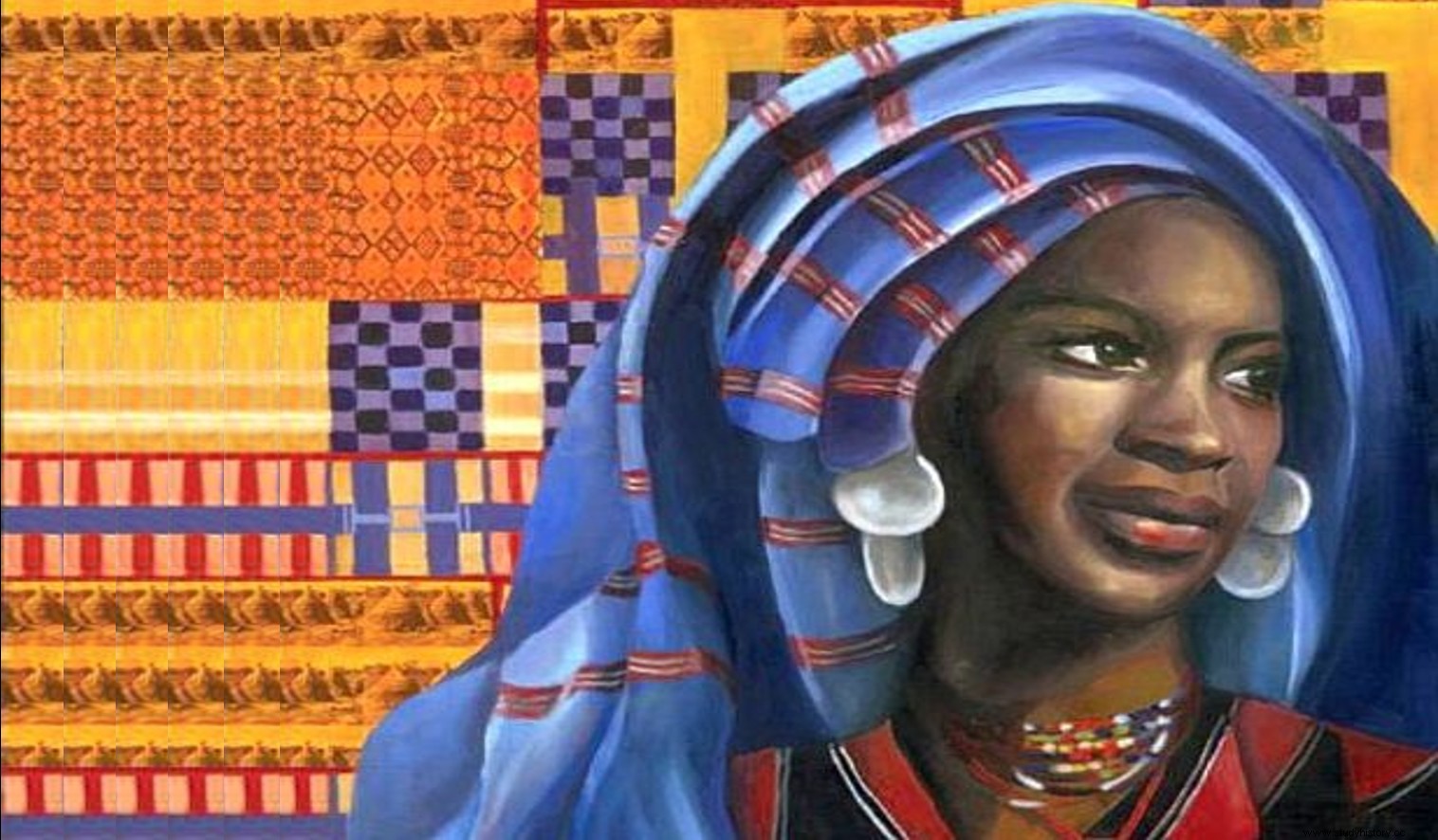Nana Asma’u (full name Nana Asma’u bint Shehu Usman dan Fodiyo, 1793 – 1864) was a princess, poet and teacher of the Sokoto Caliphate in northern Nigeria.
Influential intellectual
Daughter of the founder of the Sokoto Caliphate Usman dan Fodio and half-sister of its second Sultan Mohammed Bello, Nana Asma'u was born in 1793 in Degel, in northwestern Nigeria. Like her sisters Myram and Fatima, she benefits from an excellent education, studies the Koran and the Sunna as well as philosophical religious texts such as prayer, mysticism, law. Well-versed in Arabic literature, she speaks four languages:Arabic, Tuareg, Hausa and Fulani.
Within the caliphate of Sokoto, Nana and her sisters, as well as the wives of the caliph Aïcha and Hawwa, play a major political and literary role. Nana, the most influential, is very attached to the sharing of knowledge and attaches particular importance to the education of Muslim women. When her half-brother becomes caliph, she becomes his adviser and brings, in their collaboration, the question of women's rights, their access to education and their place in the community.

The religious education of women
Nana Asma'u leaves behind her about sixty writings. Recognized as a great intellectual, Nana maintains a correspondence in several languages. She also delivers an account of the Fulani War (or Fulani jihad), Wakar Gewaye (The Journey) and numerous poems in Arabic, Fulani and Hausa. Many of these works are historical accounts, but she also writes texts related to religion and education.
Around 1830, Nana launched a religious education project. She creates a group of female teachers (jajis) who travel within the caliphate to educate women at home, based on the writings of Nana and other Sufi scholars. Aiming first to integrate populations conquered within the Muslim religion, its educational enterprise extends to poor and rural populations.
A model of education and independence, Nana Asma’u is often considered a pioneer of feminism in Nigeria.
